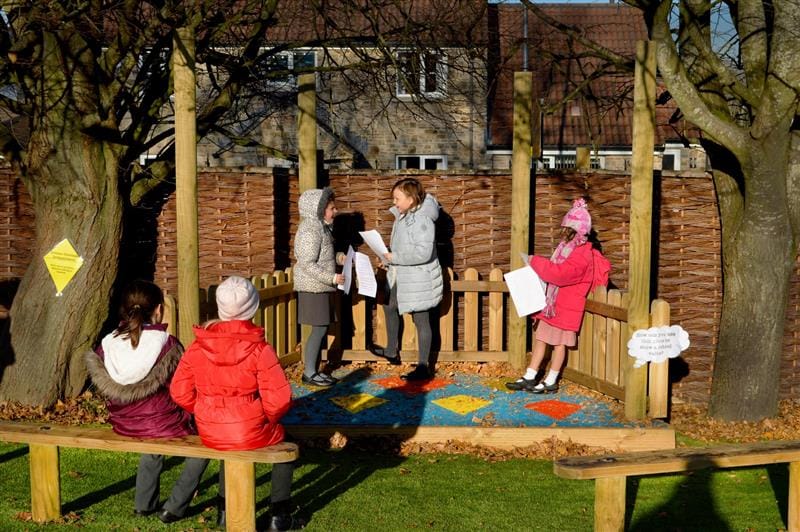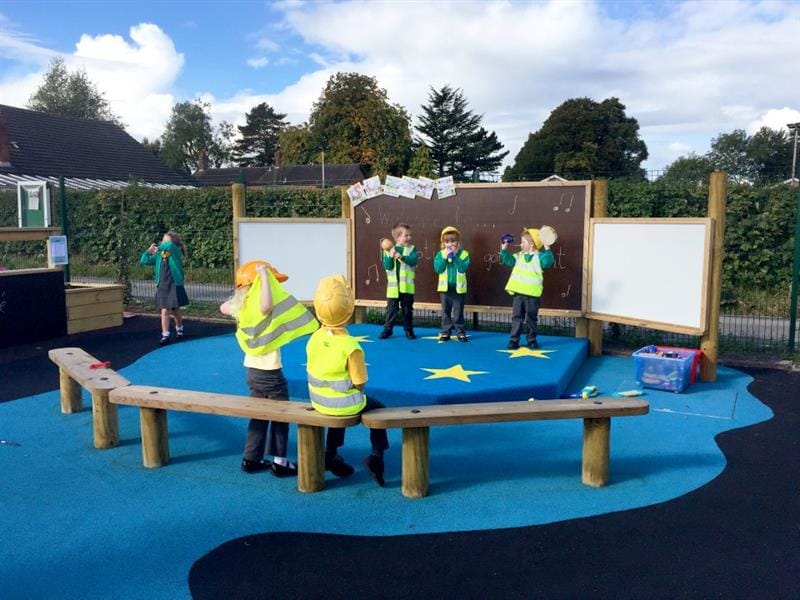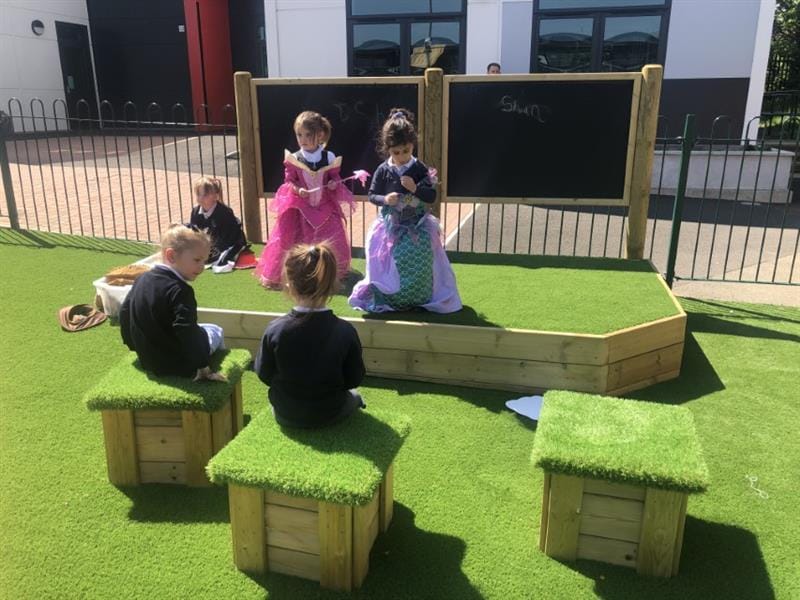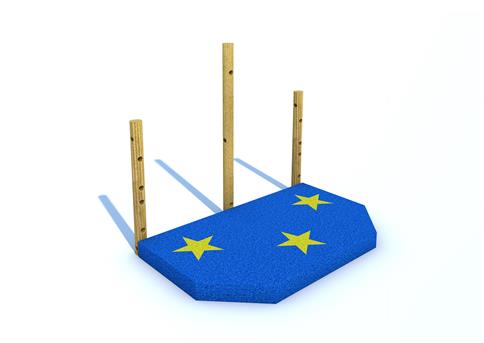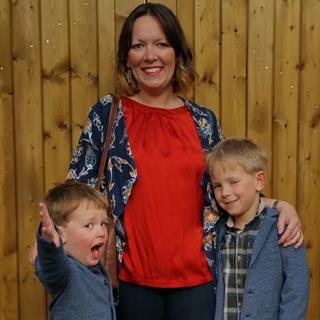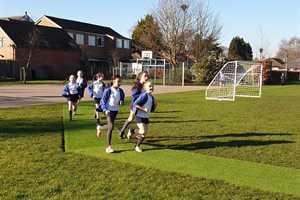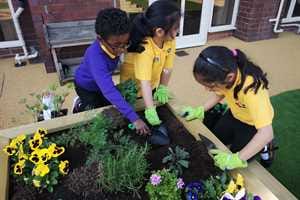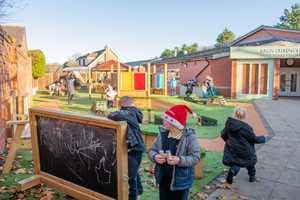
Outdoor Learning and Play
8 Surprising Ways Performing Arts Boost School Life!
Raise the curtain please! Ready to upstage some of the more formal learning techniques, Performing Arts can play a leading role in helping children to improve their knowledge and perfect many essential life skills.
They can:
- Improve attention, focus and ability to concentrate
- Build self-esteem, confidence and resilience
- Support developing language and communication skills
- Encourage social and emotional development, through team work and friendship
- Raise empathy and emotional intelligence
- Boost learning in many other areas of the curriculum
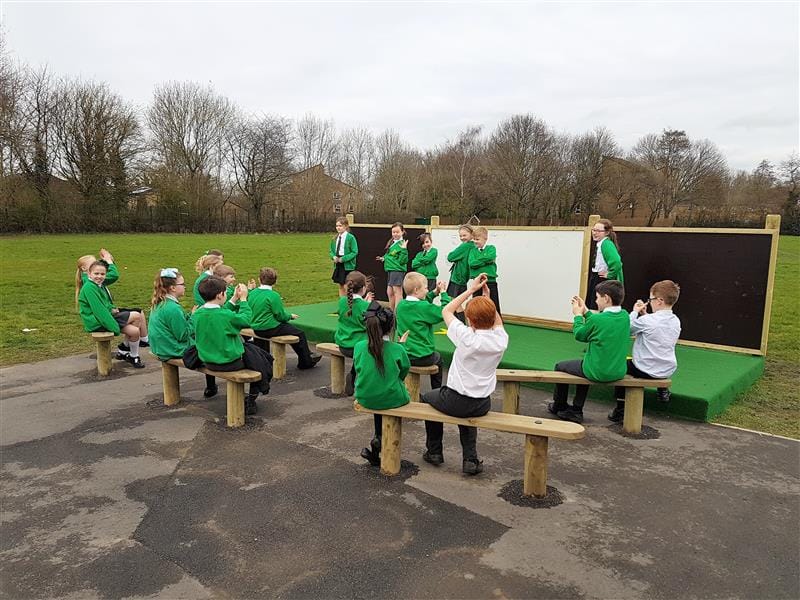
Teaching Performing Arts in preschool and primary school can elevate overall performance throughout the Early Years, KS1 and KS2, making the arts very important to incorporate into your curriculum. Excited to know how? Read on!
Getting In on the Act
Straight from the Early Years - preschoolers first enjoying pretend play - to older students developing more sophisticated performance skills, Performing Arts allow children to establish and fulfill their creative passions. They simultaneously teach excellent language and communication skills, combined with the capacity to confidently overcome life's obstacles in their own unique way!
The best thing about the way children learn through Performing Arts? It's never black and white, or about right and wrong answers - and that's exciting and fun! It's about self expression, exploring alternative options and embracing individuality.
Educational theorists emphasise the importance of “emotional intelligence” - the ability to recognise, understand and manage our own emotions as well as understanding and responding to others' emotions.
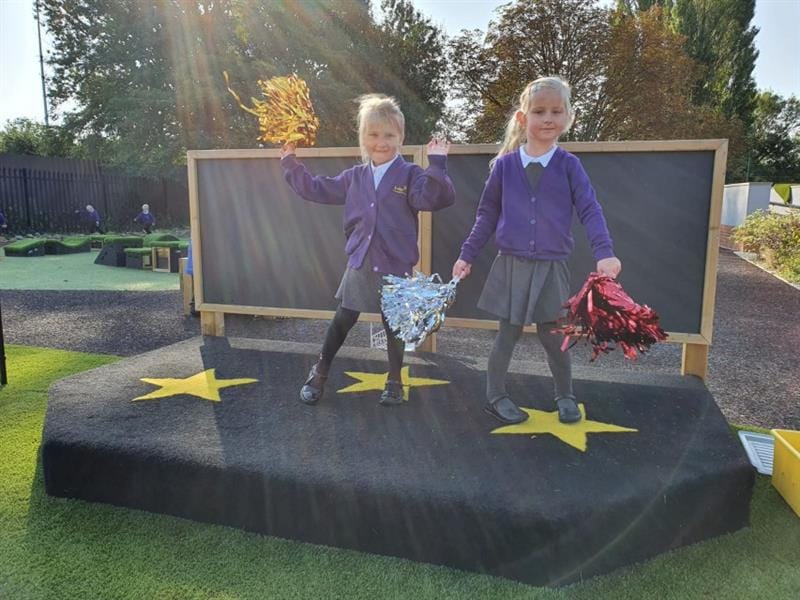
Developing a creative mind, with opportunities to use the imagination and build personality through pretend play, dramatic play and performance, helps children to gain self confidence and belief in themselves. With that, comes a natural pathway for children to go on and build their own story, mastering skills that will equip them for a life as happy and well-rounded individuals.
No-Drama Learning
Performing Arts form an important part of a broad education, with strong personal development at the core. They can embrace all subject disciplines and social activities, and thanks to the confidence and communication skills that they foster, children are empowered in whatever path they choose to follow into adulthood.
Using Performing Arts for learning and development allows children to experiment. They can explore different ideas and concepts, try out different points of view, and reinforce their own thoughts. It’s an opportunity to recreate and reenact situations, using different perspectives to reach conclusions.
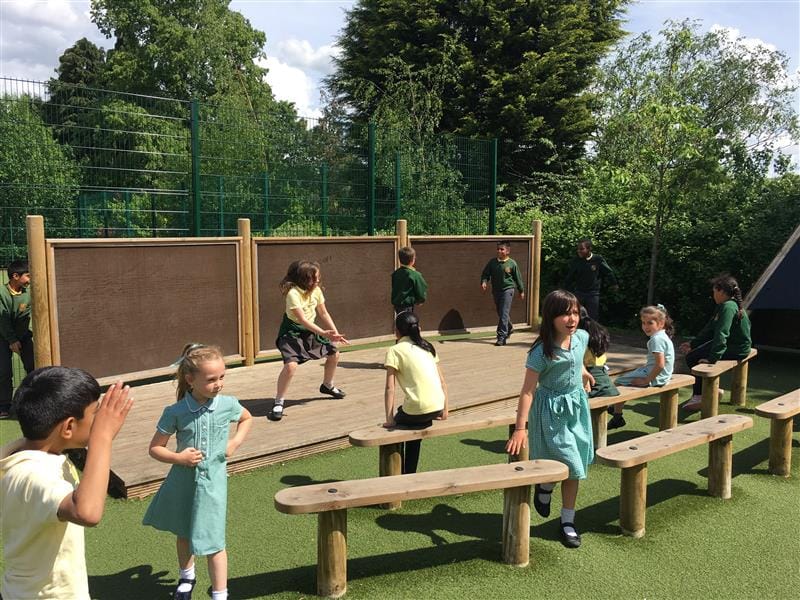
Perhaps most importantly, Performing Arts allow children to have fun being themselves - being playful and creative! Playing games, using props, toys, stuffed animals, telling and acting out stories, making different sounds, all to explore their curiosity, to try out new things, and new ways of thinking or behaving.
Children start to trust others and build relationships as they begin to share their thoughts and dramatic play ideas with confidence. They listen, put themselves in someone else's shoes, and learn respect for others through positive, constructive criticism.
This is why Performing Arts are so important in developing the whole child - helping them to enjoy and make the most out of school life.
Strengthening School Communities
To engage the whole school in Performing Arts is a fabulous way to strengthen the school community, with different classes and year groups coming together to share the joy of performance. In this way, children foster a sense of group belonging, happy within themselves and with social interactions in the school environment.
Being involved with music, drama and dance builds stronger and more engaging teacher-pupil and peer relationships, and this reinforces identities within the school community.
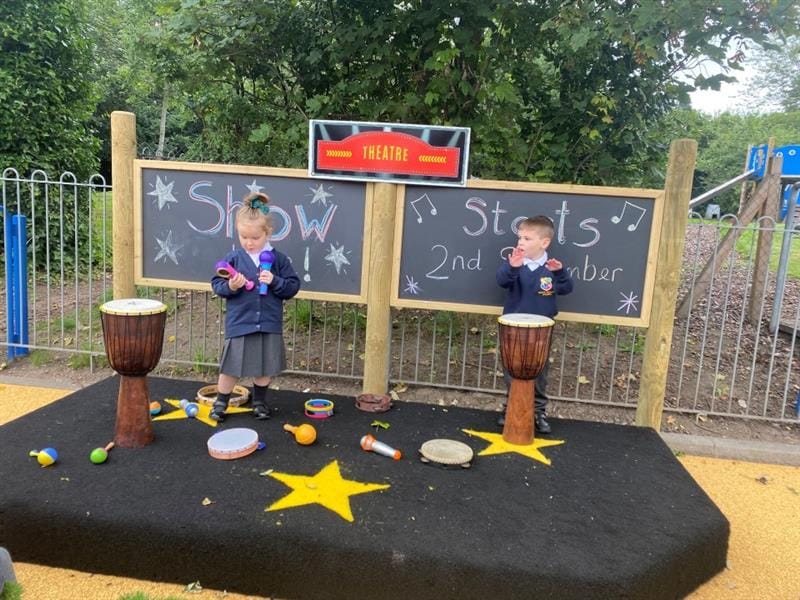
When children from different backgrounds and cultures come together in Performing Arts, they learn to work together, develop an understanding and tolerance of different ideas and attitudes, and a greater awareness and understanding of the world around them.
As children become adults, they are more willing and able to work with others and can enjoy the many benefits of the strong communities they have built.
Connecting with the Local Community
Performing Arts is a wonderful way of connecting with the wider community in the local area too, involving them with school life. This is particularly noticeable in areas where a local primary school is the focal point of community life.
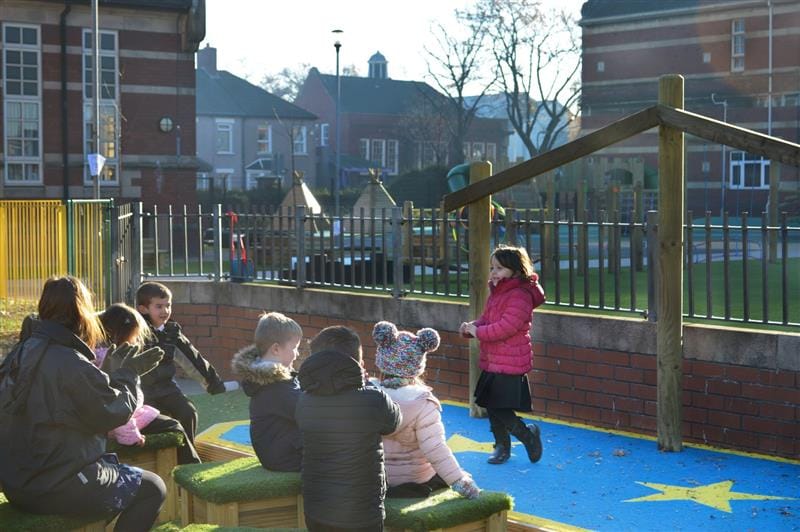
Through choral performance, musical concerts, dramatic performance, dance and charity events, children have the opportunity to showcase their talents with friends and develop their confidence through public performance. They can even write letters to parents and friends inviting them to the show!
Schools with good performance areas can play their part renting out their facilities for use by other organisations out of school hours - a great way of raising money for the school as well as supporting the wider community.
Outdoor performance areas within school grounds are becoming more popular as they are so versatile, can accommodate larger groups of performers and spectators, and can be used with less interference to the day to day running of a school.
Improving Academic Performance
Studies have indicated that children who participate in Performing Arts enjoy improved focus and performance in more traditionally academic subjects - whether embraced by preschoolers during pretend play, staged role-play to build on language and literacy lessons, or dramatic play as a cross-curricular medium to support learning in other subject areas.
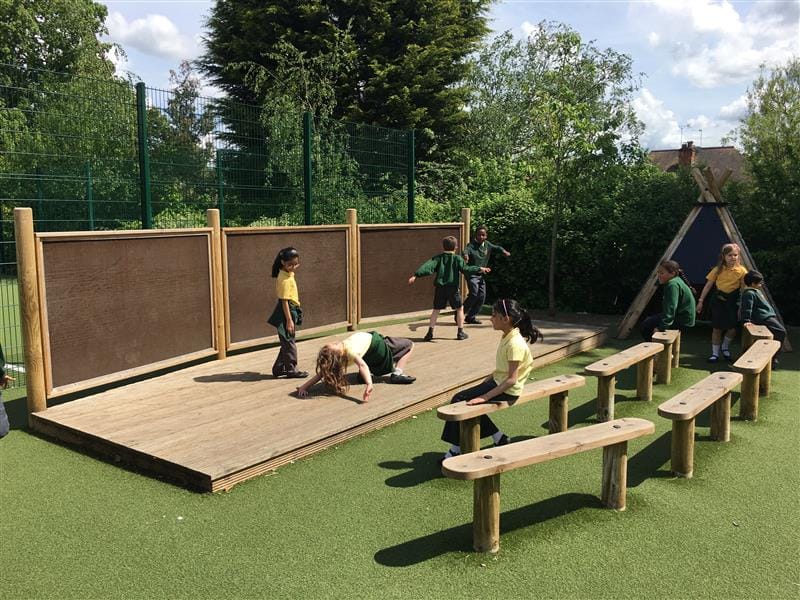
It is widely recognised that reading and performing music is linked to numeracy, through counting, pace and rhythmical patterns.
A recent study in the US found that students who participate in Performing Arts programmes are more likely to study highly academic subjects such as advanced mathematics, and to go on to further and higher education.
Top Tips for Boosting Health and Wellbeing
Anything that gets children up and about and moving around is good for them - especially if it involves being outdoors in the fresh air! It's the perfect place to enjoy pretend play and Performing Arts.
Go Play Outdoors!
Spending time outside, away from the confines of a traditional classroom, brings a sense of freedom. Children feel happier, less inhibited, and consequently are more able to express themselves and be creative with their ideas. Teachers can encourage wellbeing activities by taking Performing Arts lessons outdoors on the school playground.
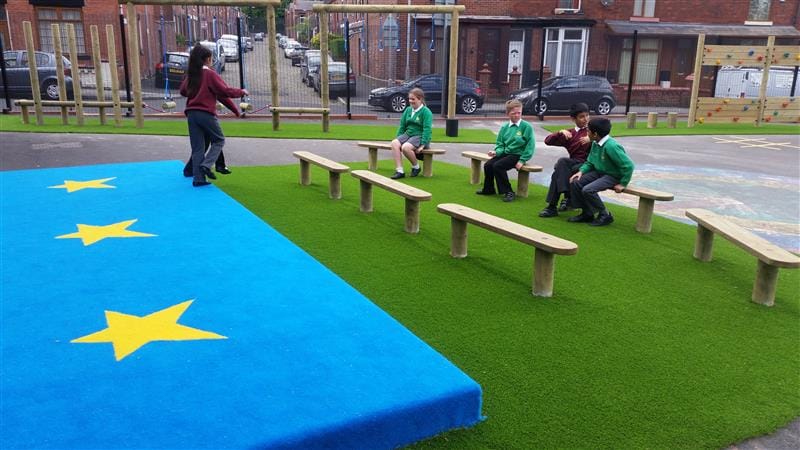
Acting and singing requires physical movement and energy. Dancing is one of the best ways of getting fit, burning calories and developing muscle control and stability.
Magical Music
Engaging with music is important for kids. Not only does it boost creativity (and feels great!) - it builds fine motor skills and requires physical control and stamina, whether through controlled breathing, or dexterity and strength in manipulating the instruments. Bring instruments into the mix to enhance dramatic play.
Express Yourself
Performing Arts allow children to express their thoughts and feelings. Pretending, exploring ideas and situations that they have experienced in a make-believe situation, brings opportunities to work out emotions in a safe environment where the consequences (if any) can be properly managed.
This is a great way of letting off steam, reducing frustrations and dealing with anxieties - essential for good mental health and wellbeing.
Character Play
Performing Arts are frequently championed as disciplines used to boost a child’s self confidence, self-esteem and resilience.
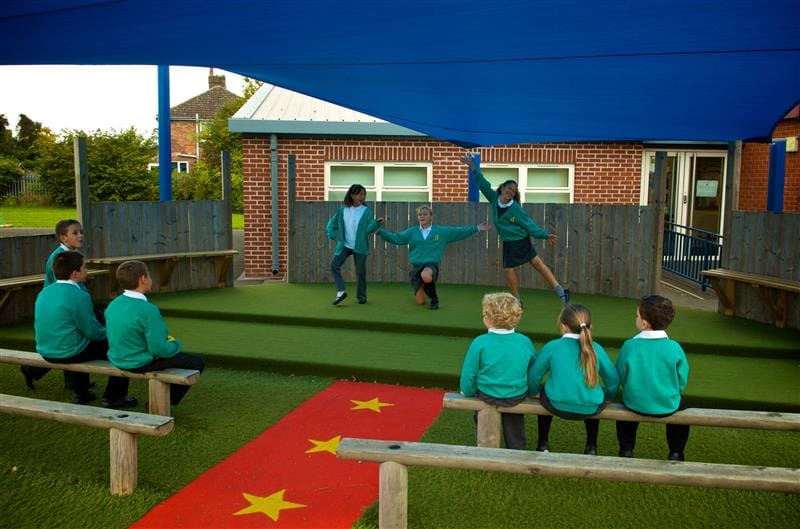
Dramatic play, pretend play and performing for parents and peers act as a catalyst for a child's character development. They're continually developing their individual characters through Performing Arts - and this impacts their ability to build relationships with others.
As children work and play together, perhaps in the cast of a play, singing in a choir, joining an instrumental ensemble or simply enjoying pretend play, they learn to cooperate and collaborate. They develop better teamwork and communication skills.
Not only that - children are inspired to become stronger team leaders thanks to the sense of individuality and self confidence that they develop through participation in Performing Arts.
Self-Confidence, Self-Awareness and Resilience
Being able to receive criticism, to learn from it, is an essential part of growing and learning. Performing Arts are open ended in their nature, so good feedback will be constructive rather than negative.
Performing Arts can teach children respect for others and how to respond to others in a manner which is helpful rather than hurtful. This can be through pupil/teacher interactions, and as between peer groups. Performances inevitably invite opinion from children’s peer groups as much as their teachers, and children can learn from positive experiences how to interact with others in a positive way.
It is precisely this approach that encourages children, builds confidence and self esteem, and enables them to build on their experiences and have the confidence to persevere with challenges they may face.
From this comes self discipline, as children learn from constructive feedback and are encouraged to practice their skills to improve their performance.
They are better able to recognise their own strengths and weaknesses and to find ways of improving and working towards new challenges, whatever they may be, as confident, resilient individuals.
Overcoming Obstacles with Creativity
Pressures on schools to produce top-end academic results in traditionally academic subjects, can often, inadvertently, work against developing a child’s creativity. It's a constant challenge for teachers to keep creativity and individual thinking alive while delivering objectives.
Performing Arts are an exciting way of combating this. They can present many and varied challenge scenarios, which children are encouraged to find their own ways of overcoming. When children pretend, they're being resourceful and developing the means to think through alternative solutions.
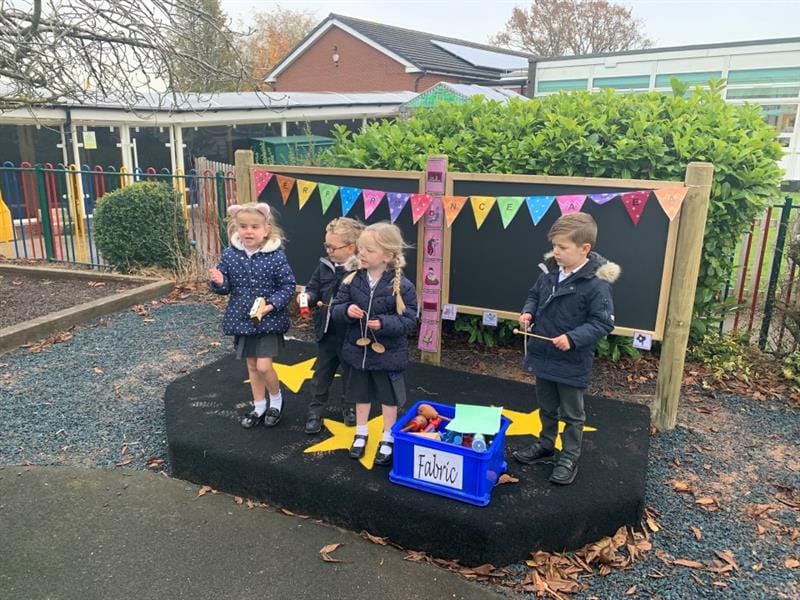
Product Spotlight
Think of an actor playing different personalities, a dancer portraying a specific emotion through movement, or a musician creating a particular atmosphere through sound. It takes practice, observation, imagination and alternative thinking.
Through Performing Arts, children share and recognise different perspectives, and develop empathy. Thinking outside of their own situation allows them to see alternative options - to be creative and resourceful with what they think and do. They're better able to find their own innovative solutions to challenging scenarios - a skill they can apply to many situations in life.
We have designed a unique range of Outdoor Performance Stages to enhance children’s learning experiences and boost Performing Arts lessons in your school. Please have a look on our website. You can Contact Us if you would like to discuss how we can custom build our stages to suit your school playground.

